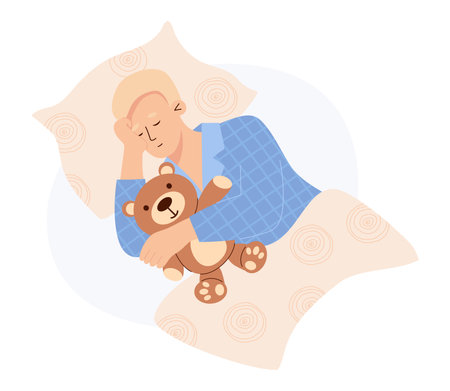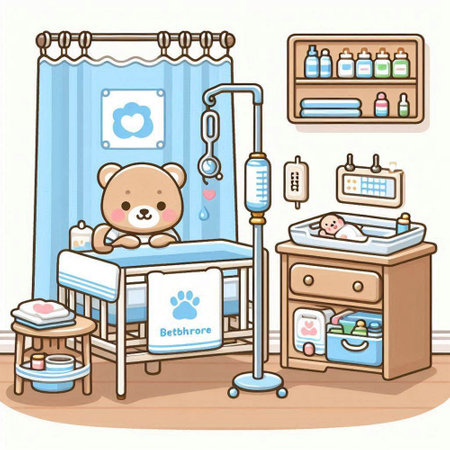Understanding Your Physical Changes
Welcoming a new baby brings immense joy, but it also marks the beginning of profound physical changes for mothers in the UK. As you recover from childbirth, whether it was a natural birth or a caesarean section, your body embarks on a journey of healing and adaptation. The NHS provides robust postnatal care, offering midwife visits at home and access to local health visitors, ensuring that every mother receives tailored support during these crucial weeks.
Common Physical Transformations
It is completely normal to notice shifts in your body as you settle into motherhood. Some of the most common changes include:
| Physical Change | Description | NHS Support & Guidance |
|---|---|---|
| Perineal Recovery | Soreness, swelling, or stitches are common after vaginal delivery. | Midwives provide advice on pain relief and hygiene; regular checks during home visits. |
| Caesarean Section Healing | Abdominal discomfort and restricted movement may occur after surgery. | NHS offers wound care guidance and follow-up appointments at your local surgery. |
| Breastfeeding Adjustments | Breasts may feel tender, swollen, or engorged as milk comes in. | Lactation consultants and health visitors offer breastfeeding clinics and helplines. |
| Energy Fluctuations | Fatigue is common due to hormonal changes and night feeds. | Mental health support and community groups help with coping strategies. |
Daily Energy Levels
You might find that simple tasks become more tiring than before. This is a universal experience among British mothers, often discussed openly at local NCT (National Childbirth Trust) meetups or baby groups. Prioritising rest, accepting help from family and friends, and maintaining open communication with your GP are all encouraged within the UK’s supportive culture. Remember, it’s not just about bouncing back—it’s about giving yourself grace as you adapt physically and emotionally to life with your newborn.
2. Navigating Emotional Ups and Downs
After the birth of your baby, it is completely natural to experience a whirlwind of emotions. The early postnatal weeks are often described as an emotional rollercoaster, and in Britain, parents are encouraged to acknowledge and talk openly about these feelings. Many new mothers experience the “baby blues”—a period of heightened tearfulness, irritability, and anxiety that typically peaks around three to five days after birth and usually resolves within two weeks. However, for some, these emotions may linger or intensify, evolving into postnatal depression or other mental health concerns that require extra support.
Understanding Common Emotional Experiences
| Emotional State | Typical Duration | Common Signs |
|---|---|---|
| Baby Blues | First 2 weeks post-birth | Crying spells, mood swings, feeling overwhelmed |
| Postnatal Depression | More than 2 weeks post-birth | Persistent sadness, withdrawal, difficulty bonding with baby |
| Anxiety Disorders | Varies | Excessive worry, panic attacks, restlessness |
The Importance of Reaching Out in the UK
The British approach places strong emphasis on seeking help rather than struggling alone. Health visitors—qualified nurses or midwives with special training in child health—are a vital source of support in the UK. They routinely visit families at home during the early weeks and are trained to spot signs of emotional distress. Health visitors can offer advice, provide reassurance, and refer you to further services if needed.
Accessing Local Support Networks
Connecting with others who understand what you’re going through can make all the difference. Across Britain, there are numerous postnatal groups—often held at local children’s centres or community halls—where parents can share experiences in a relaxed environment. These groups are open to everyone and range from informal coffee mornings to structured peer-support sessions led by trained facilitators.
Useful UK-Based Resources for Postnatal Mental Health Support:
- NHS Choices: Comprehensive information on postnatal mental health and local services.
- PANDAS Foundation UK: Peer support via helpline, online communities, and local groups.
- NCT (National Childbirth Trust): Postnatal meet-ups and courses across the UK.
- MIND: Mental health charity offering support and advocacy for parents.
If you notice persistent low mood or anxiety beyond the initial few weeks—or if you simply feel like you need someone to talk to—don’t hesitate to reach out to your GP or health visitor. Remember: prioritising your own mental wellbeing helps create a nurturing environment for both you and your baby.

3. Bonding with Your Newborn
Building a strong emotional connection with your baby is at the heart of early parenting, especially during those first postnatal weeks in Britain. Responsive parenting, where you attune to your newborn’s cues and needs, lays the foundation for secure attachment and healthy psychological development. British families often place significant value on gentle routines and quiet time together, which nurtures both parents and infants as they adjust to new rhythms.
The Power of Skin-to-Skin Contact
Skin-to-skin contact, also known as “kangaroo care,” is highly encouraged in UK maternity wards and homes alike. This simple practice not only soothes your baby but also helps regulate their temperature, heart rate, and breathing. It can be especially comforting during those sometimes overwhelming first days, helping both mums and dads bond closely with their newborns.
| Skin-to-Skin Benefits | How to Practice |
|---|---|
| Stabilises baby’s body temperature | Hold baby (wearing only a nappy) against your bare chest under a blanket |
| Promotes breastfeeding success | Start immediately after birth if possible; continue daily |
| Reduces parental stress | Both parents can participate for short or longer periods |
Responsive Parenting in British Homes
British cultural practices around bonding often emphasise gentle responsiveness—listening for your baby’s cries, offering cuddles, and making eye contact during feeds or nappy changes. Many families find comfort in establishing small rituals, such as singing traditional lullabies (“Rock-a-bye Baby” or “Twinkle Twinkle Little Star”), reading soft-voiced stories before naps, or enjoying quiet walks in prams through local parks. These moments encourage emotional closeness and help parents recognise their baby’s unique personality.
Tips for Building Emotional Connections
- Prioritise calm moments: Dim lights, soft voices, and relaxed environments promote connection.
- Share caregiving: British dads are increasingly hands-on; both parents should take turns holding, feeding (if bottle-feeding), and soothing baby.
- Join local parent groups: Many communities offer “baby massage” classes or “mum-and-baby” meetups that foster shared experiences and bonding.
Remember:
No two babies—or families—are the same. Allow yourself grace as you learn to understand your newborn’s needs. In the UK, community midwives and health visitors are wonderful sources of support if you need guidance or reassurance during these precious first weeks.
4. Adapting Relationships and Family Dynamics
The arrival of a new baby is often described as life-changing, not just for parents but for the entire family network. In Britain, where traditions like Sunday roasts and extended family visits are woven into the fabric of daily life, the early postnatal period can bring both joy and tension to relationships. It’s common for couples to experience shifts in their partnership as they adjust to new roles and shared responsibilities. Sleep deprivation, changing routines, and fluctuating emotions can make even small disagreements feel overwhelming.
Shifts in Partner Relationships
Many British couples find that open communication becomes more important than ever after bringing their baby home. Talking honestly about feelings, expectations, and needs can prevent misunderstandings from turning into resentment. Remember, it’s normal to have different approaches—one partner may want to follow routines while another prefers flexibility. Respecting these differences helps build a stronger parenting team.
Tips for Communicating Effectively
| Tip | Description |
|---|---|
| Schedule regular check-ins | Set aside time each week, perhaps over a cup of tea, to talk about how you’re both coping. |
| Use “I” statements | Express your feelings without blaming (“I feel tired” instead of “You never help at night”). |
| Share appreciation | Acknowledge each other’s efforts, however small – a simple “thank you” goes a long way. |
| Seek outside support if needed | If communication breaks down, consider reaching out to your health visitor or local support groups. |
Navigating Family Involvement in a British Context
British families often play an active role during the early weeks—grandparents may offer to help with childcare or meals, siblings might pop by unexpectedly. While this support can be invaluable, it sometimes leads to friction if boundaries aren’t clear. Setting gentle limits around visits or advice ensures everyone feels respected.
Sharing Responsibilities in the Household
The division of household chores can become a major stress point post-birth. Discussing expectations openly and fairly distributing tasks helps maintain harmony. Below is an example of how typical responsibilities might be shared:
| Responsibility | Who Might Do It? | British Cultural Note |
|---|---|---|
| Nappy changes & feeds | Shared between partners where possible | Modern British dads are increasingly hands-on; parental leave schemes support shared care. |
| Household cleaning | Split or rotate based on energy levels | A tidy-up rota on the fridge is a common British solution. |
| Shopping & cooking | Family members or helpful friends/grandparents may assist initially | Batches of cottage pie or shepherd’s pie are popular choices for easy reheating. |
| Mental load (scheduling appointments etc.) | Try sharing diaries/calendars digitally for transparency | The British love organisation—using apps or wall calendars keeps everyone on track. |
Cultivating Connection Amidst Change
The early postnatal weeks challenge every relationship dynamic, but they also provide opportunities for growth and deeper connection. By approaching these changes with patience, empathy, and typical British pragmatism (and perhaps a good brew), families can navigate this transition together and lay strong foundations for the future.
5. Seeking Support in Your Community
Adjusting to life after birth can feel overwhelming, both physically and emotionally. In the UK, you are not alone on this journey—there is a wide array of accessible support networks designed to help new parents navigate these early weeks. Proactively connecting with your community not only supports your own wellbeing but also helps foster a nurturing environment for your baby’s psychological and social development.
Accessible UK Support Networks
The British approach to postnatal care emphasises community-based support and open communication. Here are some essential resources available to new parents:
| Support Network | Description | How to Access |
|---|---|---|
| NHS Postnatal Services | Health visitors, midwives, mental health support, feeding clinics. | Contact your local GP surgery or NHS 111 for guidance. |
| Local Baby & Toddler Groups | Community-run groups for socialising, advice, and play sessions. | Check local council websites, libraries, or children’s centres. |
| Children’s Centres & Family Hubs | Offer parenting courses, breastfeeding support, drop-in sessions. | Search ‘children’s centre’ with your postcode on gov.uk. |
| Mental Health Charities (e.g., Mind, PANDAS Foundation) | Provide emotional support and resources for postnatal mental health. | Online helplines and local peer support groups. |
When to Seek Help?
It’s common to wonder whether what you’re feeling is “normal.” If you notice persistent low mood, anxiety, trouble bonding with your baby, or physical symptoms that don’t improve—reach out sooner rather than later. Early intervention is key for both parent and child well-being.
Guidance on Seeking Help
- Trust your instincts: If something feels off, it’s always best to check in with a professional—even if it seems minor.
- Create a routine: Attend regular baby group meet-ups; this provides routine and reassurance as you adapt to new roles.
- Lean on your health visitor: They are trained to support all aspects of postnatal adjustment—from feeding challenges to emotional changes—and can signpost you to further help.
- Stay connected: Reach out to friends or family when possible; sometimes just sharing how you’re feeling can lighten the load.
Your Wellbeing Matters
The transition into parenthood is significant—physically, emotionally, and socially. The British community spirit encourages seeking support without stigma. Remember: reaching out is not a sign of weakness but an important step in caring for both yourself and your growing family.
6. Self-Care in the British Postnatal Landscape
Amidst the whirlwind of new motherhood, self-care often feels like a luxury rather than a necessity. However, looking after your own wellbeing is essential for both you and your baby—especially in the early postnatal weeks when physical and emotional changes are at their peak. In Britain, where support networks can vary widely, embracing practical and culturally relevant self-care strategies can make a meaningful difference.
Why Self-Care Matters
Self-care isn’t selfish; it’s an investment in your ability to nurture and connect with your child. Attending to your needs helps regulate emotions, reduces the risk of postnatal depression, and models healthy coping skills for your growing family. British culture increasingly recognises mental health as important as physical health—so don’t hesitate to prioritise yourself.
Culturally Appropriate Ways to Look After Yourself
Here are some simple, realistic ways British mums can care for themselves during this transition:
| Self-Care Practice | How to Integrate It | British Context |
|---|---|---|
| Cuppa & Pause | Take 10 minutes daily with a tea or herbal brew, away from distractions. | The ritual of tea is soothing and familiar; use it as mindful downtime. |
| Walking Outdoors | Stroll through local parks or along village paths with the pram. | Fresh air and nature are central to British life; even short walks boost mood. |
| Mum & Baby Groups | Join local NCT or community-run meet-ups for connection and support. | These groups offer solidarity, advice, and friendships rooted in shared experience. |
| Accepting Help | Saying ‘yes’ when friends or family offer meals, childcare, or errands. | The British value politeness but accepting help strengthens community bonds. |
| Mindfulness & Rest | Short mindfulness exercises or guided relaxation apps before bed. | Mental health resources are widely available on the NHS and through charities. |
Balancing Expectations
The pressure to “do it all” can be strong, but remember: good enough is truly good enough. The British approach often values resilience and stoicism—yet reaching out for support is a sign of strength, not weakness. Whether it’s chatting with your Health Visitor or confiding in another mum over a coffee, sharing your feelings can lighten the load considerably.
Nurturing Yourself Nurtures Your Family
Your own wellbeing is the foundation upon which your baby’s development rests. By embedding small acts of self-care into everyday routines—and drawing on the unique support systems around you—you’re not only caring for yourself but nurturing the deep bond between you and your child. Embrace these early weeks with gentleness towards yourself, knowing that every step you take towards self-kindness benefits your whole family.

